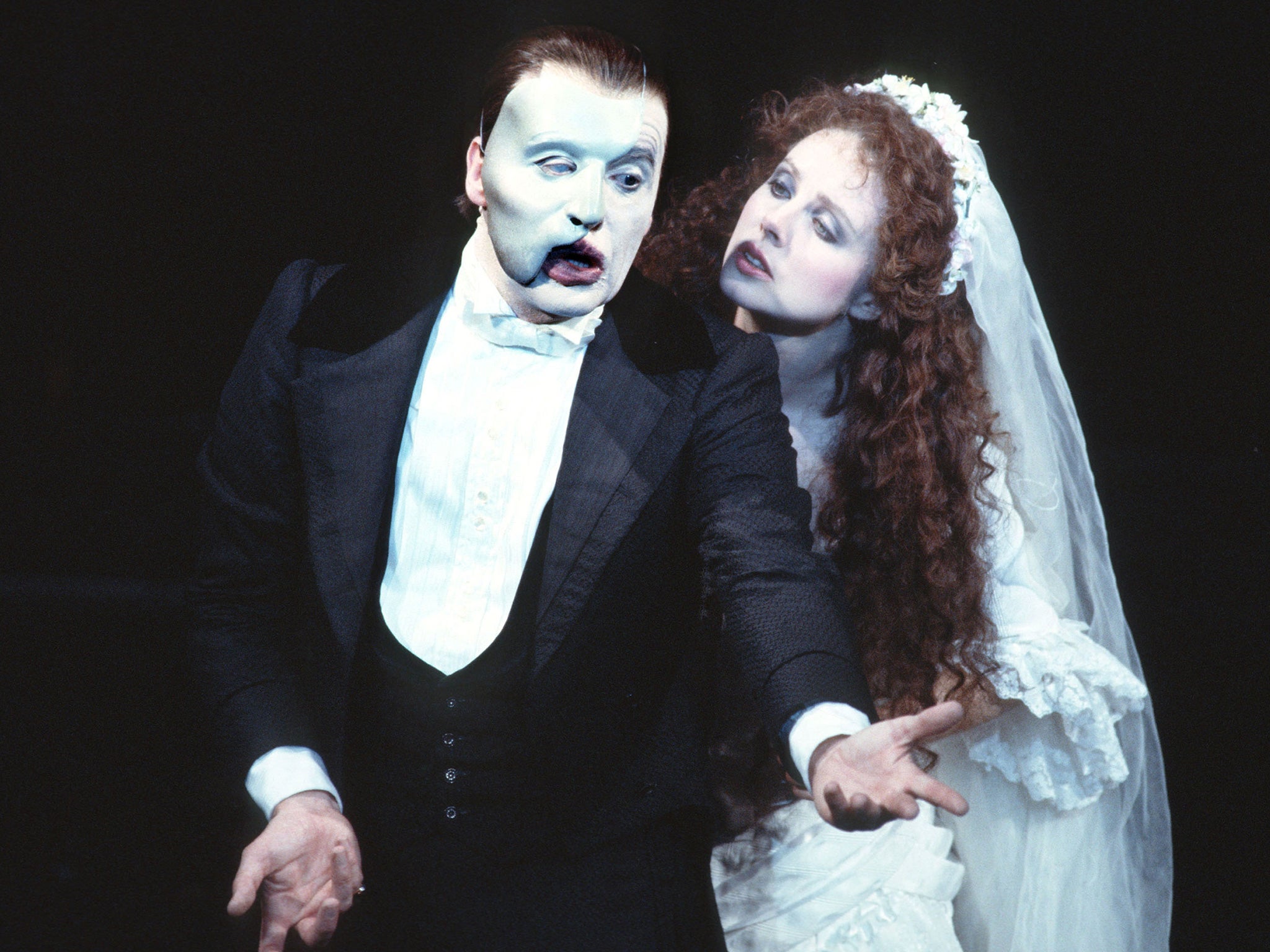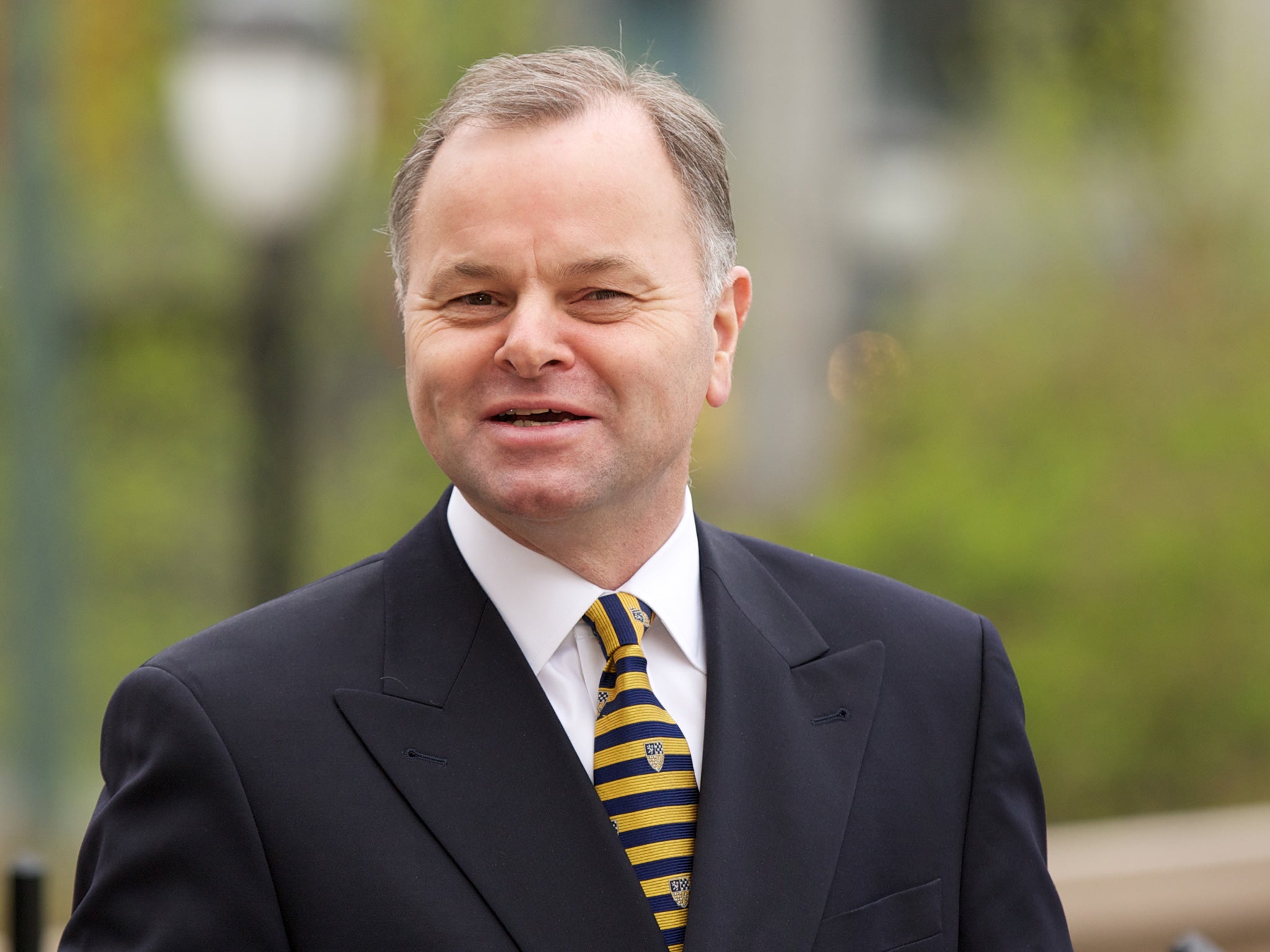The Phantom of the Opera and a £22m trust fund feud with Norway
The bizarre tale of the president of the country’s parliament, his cousin, and claims of fraud against the British offshore finance industry

Your support helps us to tell the story
From reproductive rights to climate change to Big Tech, The Independent is on the ground when the story is developing. Whether it's investigating the financials of Elon Musk's pro-Trump PAC or producing our latest documentary, 'The A Word', which shines a light on the American women fighting for reproductive rights, we know how important it is to parse out the facts from the messaging.
At such a critical moment in US history, we need reporters on the ground. Your donation allows us to keep sending journalists to speak to both sides of the story.
The Independent is trusted by Americans across the entire political spectrum. And unlike many other quality news outlets, we choose not to lock Americans out of our reporting and analysis with paywalls. We believe quality journalism should be available to everyone, paid for by those who can afford it.
Your support makes all the difference.The president of Norway’s parliament has spoken out against secrecy and alleged fraud in British offshore finance, as he lifts the lid on his 10-year battle to secure control over a £22m trust fund in Guernsey.
In remarkably candid comments for such a senior politician, Olemic Thommessen condemned the “discretion and anonymity” at the heart of the British legal system – saying it was effectively “closed” to outsiders.
The outspoken remarks represent Mr Thommessen’s first public statement on a remarkable legal battle linked to his cousin Maria Bjornson, the renowned theatre designer who created the Phantom of the Opera costumes.
The politician – a leading figure in his country’s Conservative Party – has written to Guernsey Police and the HMRC demanding a full investigation over the handling of the trust.
Mr Thommessen set up a Guernsey trust for his relative after the death of her father in 1987. He was the trustee of the inheritance she received.
Mr Thommessen admitted to a Norwegian newspaper he did so because of tax considerations and also “because she wasn’t sure where she was going to settle at the time”.
However, most of Ms Bjornson’s fortune came from success working on shows such as the Andrew Lloyd Webber’s Phantom, whose royalties were paid into the trust and managed by Butterfield, the Guernsey-based bank controlling the fund.

Ms Bjornson died suddenly at the age of 53 in 2002, from a suspected epileptic seizure in the bath of her London home, leaving no heirs. Mr Thommessen tried to get access to the fund – called the Mischa Trust – but claims he was refused. He says he spent 10 years locked in a private fight to get information from trustees in the British Crown dependency – an offshore financial hub – before he says soaring legal costs led him to make a settlement. A large portion of the wealth in the trust was transferred into a new charitable culture foundation in Norway.
The legal battle highlights the secrecy that surrounds the flourishing financial sector in the Channel Islands, which is facing increased scrutiny of its role in tax avoidance following the recent HSBC scandal.
During his decade in dispute with the fund, Mr Thommessen also asked the City of London Police and HMRC to investigate but said that no action was taken. He then hired British financial experts for help.
A specialist wrote a report based on all the financial documents found in Ms Bjornson’s home after her death.
Mr Thommessen believed the report raised questions about his cousin’s accountants and the management of the trust and asked authorities in Guernsey to investigate. But they said there was insufficient evidence to proceed.
A breakthrough for Mr Thommessen arrived in 2013 when the Institute of Chartered Accountants of England and Wales (ICAEW) began its own investigation. The regulator disciplined John Robinson, the head of Butterfield Bank, for “failing to prevent the issuing of misleading accounts for the trust”.
However, it took another seven months for Mr Thommessen to discover the names of those involved after the ICAEW granted an anonymised decision. Mr Robinson had argued public exposure would damage both his and his company’s reputation given the close-knit world of finance in Guernsey. He was eventually named by the executor of Ms Bjornson’s estate.
“The whole English legal system is packed in all sorts of firewalls, where discretion and anonymity make it almost impossible to get access to cases that directly concern you,” Mr Thommessen, who says he has no financial stake in the trust, told the Oslo newspaper Dagens Næringsliv.
“This 10-year long process has convinced me about how wrong the British legal system is. When you try to penetrate a case, it’s closed for access, and if you try to break the barrier it can cost you years and great amounts to fight against people who claim you’re breaking discretion.”
Following the ICAEW tribunal’s decision, Mr Thommessen wrote to the HMRC chief executive Lin Homer informing her of Guernsey’s initial investigation into Butterfield Bank and Mr Robinson.
Mr Thommessen asked Ms Homer to “secure every file or document” relating to both the trust and the bank. Although writing in a private capacity, he said: “The Prime Minister [of Norway] has issued a statement about the matter. She supports me in my efforts to see justice done…. The issues concerning Butterfield are very high-profile here in Norway and are known to the entire government.”
A spokesman for HMRC said: “We take all allegations of misconduct made against our staff extremely seriously and we have a procedure for dealing with them through a dedicated internal governance team.”
A Butterfield spokesperson said last night: “As trustee of the Mischa Trust, Butterfield takes very seriously its fiduciary responsibilities, adheres to all applicable laws and regulations, and has always been and continues to be fully co-operative with authorities. Butterfield is in full compliance with the court ruling in the matter of the Mischa Trust, and continues to direct its efforts to giving full and proper effect to the settlement agreement sanctioned by the court.”
Ms Bjornson was born into abject poverty in Paris after her mother fled the Communist regime in Romania. Of the 126 set and costume designs produced in her career the best known is undoubtedly Andrew Lloyd Webber’s The Phantom of the Opera from 1986, the year before she became a British citizen.
Mr Thommessen told The Independent: “I have no further statement to make at this time other than to confirm that I was the sole settlor of the Mischa Trust in Guernsey in December 1987.”
The politician has sent his dossier of evidence to Guernsey Police demanding it open a criminal inquiry. A spokesman for the force said: “Mr Thommessen has submitted evidence to us, which we are currently reviewing before assessing whether an investigation is appropriate.”
Join our commenting forum
Join thought-provoking conversations, follow other Independent readers and see their replies
Comments